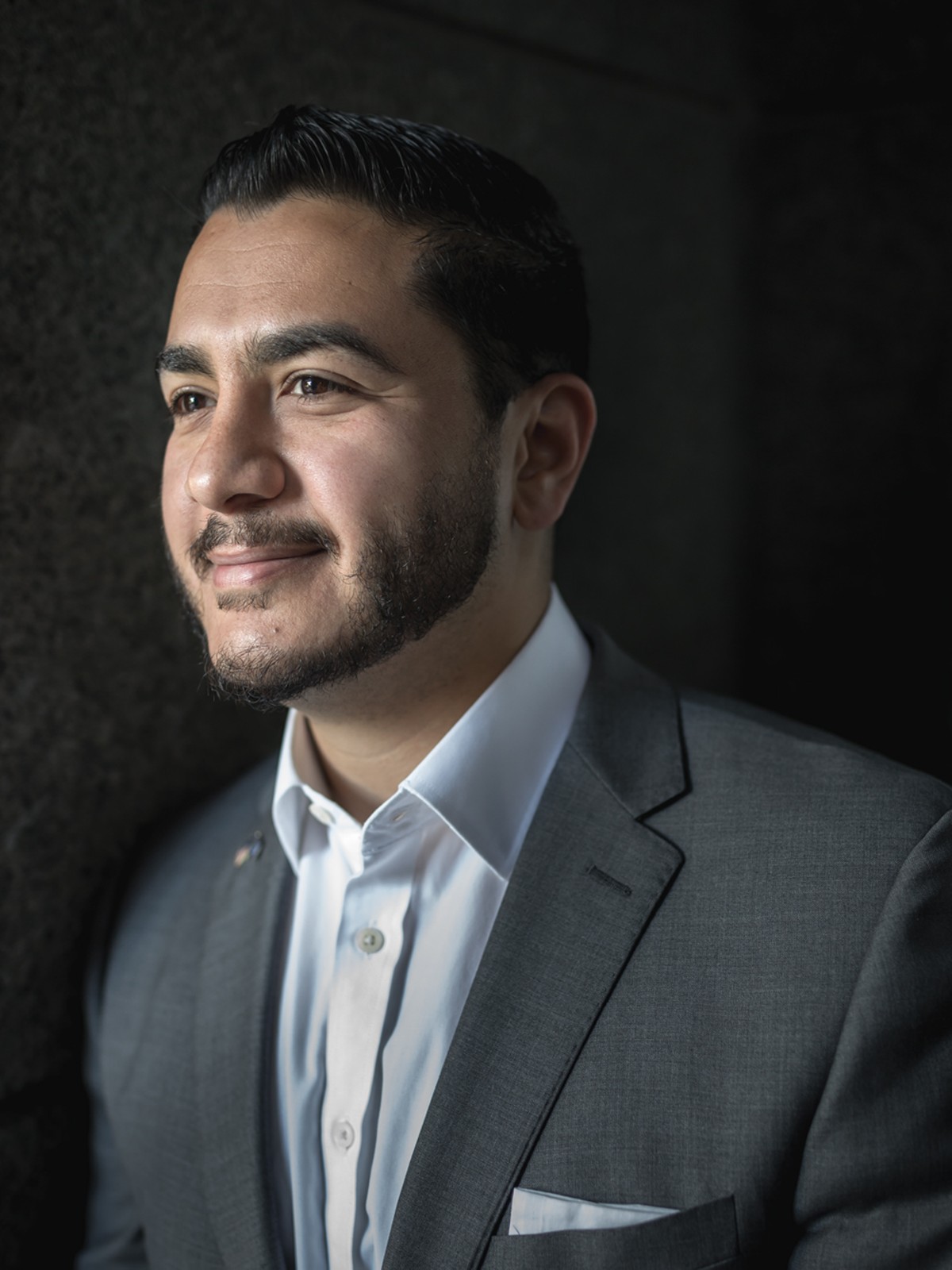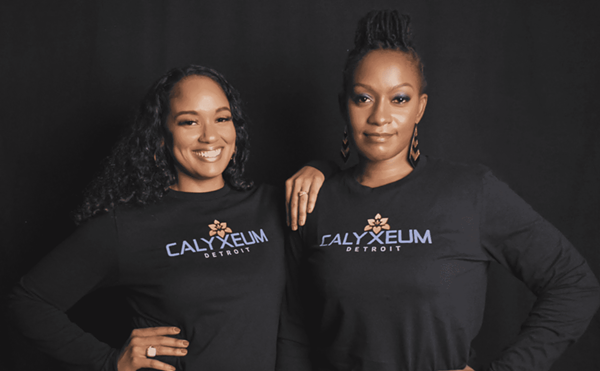To the unknowing eye, Abdul El-Sayed may appear to be another big-dreaming millennial (which he is) who posts pictures of food on Instagram (which he does). Yet he has more up his sleeve than a compelling smile and a homemade jerky recipe: At just 32, El-Sayed is running for governor.
El-Sayed's story is one chock-full of twists, turns, and seemingly innumerable accolades. Born in Michigan to Egyptian immigrants, he attended Andover High School in Bloomfield Hills before moving on to the University of Michigan, where he studied political science and biology. Four years later, he spoke at the university's 2007 commencement alongside former president Bill Clinton, who joked that El-Sayed had a future in politics after hearing him.
He completed his MD at Columbia University in 2014, following stints at the University of Michigan Medical School and Oxford University, which he attended as a Rhodes Scholar. After spending a year as an assistant professor in Columbia's Department of Epidemiology, he was appointed by Mayor Mike Duggan as health officer and executive director of the Detroit Health Department in 2015. At 30 years old, El-Sayed became the youngest-ever health official of a major U.S. city.
El-Sayed says that his time at the Department angered him into action.
"I was rebuilding the Detroit Health Department, an agency that had been shut down when our city was facing municipal bankruptcy and state takeover, and watching the same emergency managers who were poisoning kids in Flint," he explains. "Public health is about a set of basic things that people need in their lives to keep them healthy — access to a good job, a living wage, a good roof over their heads, healthy air, healthy water, a walkable environment. I realized the work of being a health commissioner was limited to a few parts of that. I wanted to go about setting an agenda that was really about people, for people."
El-Sayed's impact extends well beyond the sphere of public health. In just a few months, his gubernatorial campaign has garnered support from Democrats statewide. A practicing Muslim, if elected El-Sayed would be the United States of America's first Muslim governor.
"Look, I am Muslim, and a lot will be made about my faith. To me, it is part of who I am, but independent of why I'm running for governor," he says. "It inspired me to serve people, in the teachings of my faith, but really, I'm running because I believe I can be a great governor for people, whether I'm Muslim, Christian, Jewish, Buddhist, Atheist, or another. I think I'm more focused on having the right conversations with people about the challenges they face, making sure that we're coming up with the right solutions, and that we're in the position to implement them when we're elected."
In the 2016 election, Michigan voted for a Republican presidential candidate for the first time since 1988. Today, incidents of Islamophobia are being reported on a regular basis across the state. From this vantage point, El-Sayed's chances of victory may appear slim. Yet to him, the race is about more than just the title of governor.
"I want to create a movement that unites people around a belief that our government, which is hallowed [as] being for people and by people, a movement that brings us back to that core," he explains. "I think that would result in my being elected, but more importantly, results in the opportunity to lead the way that I want to lead and be able to inspire, again, about what government can do for people. If and when it is focused on real people, rather than the corporate elite who have locked out so many from the means for a great life."
Regarding his tangible goals for the state, El-Sayed cites repairing the damage caused by a deceptive state government.
"We look around, we see problems like a faltered economy, failing schools, a state that is one of the least transparent, the least accountable in the entire country," he says. "That's led us to doing things that are dastardly, like poisoning 9,000 kids in one of the poorest cities in America. That's cause for a lot of criticism. I hope that what my candidacy can do is to inspire people to believe in a future, a potential, that is better than the one that we live in. If we can't believe in that, I worry a lot about our future."
El-Sayed may hold a multitude of titles, but in the end, he hopes to be remembered for something more.
"[I want to be remembered as] somebody who believed honestly in people and their ability to thrive and to flourish if we create the right circumstances," he says. "Somebody who worked every day to create those circumstances for all kinds of people. And somebody who inspired people to believe in a world that is just a little bit more just, a little bit more equitable, and a little bit more sustainable than the one that we have today."
Find out more about El-Sayed's campaign at abdulformichigan.com.
Back to the People Issue.






